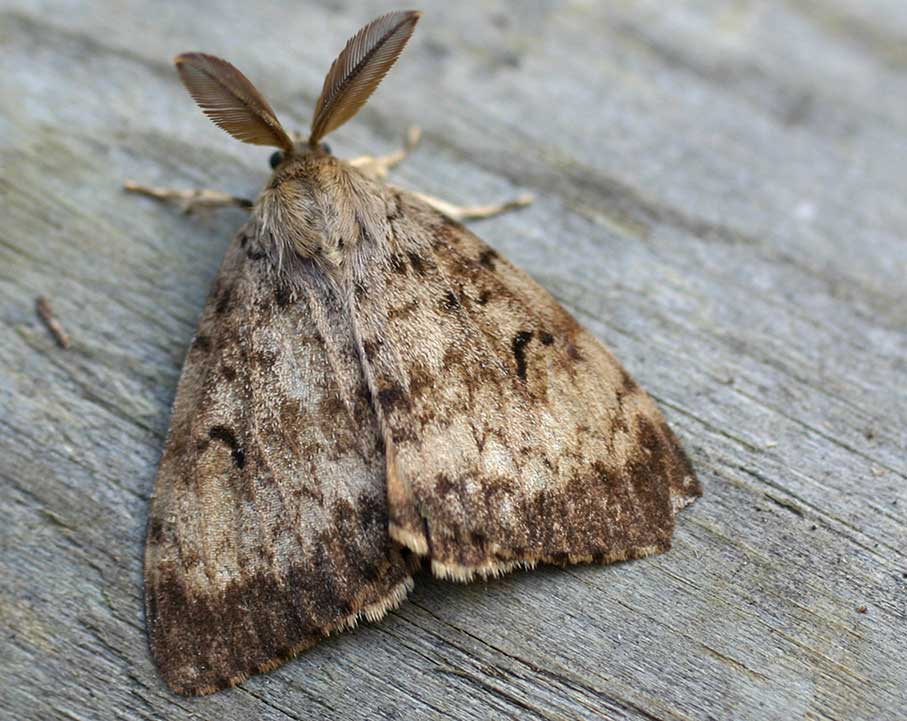
Industry News
News
Invasive spongy moth spraying planned in B.C.
January 15, 2024 By CFI Staff
 Adult male spongy moth. Photo courtesy Government of B.C.
Adult male spongy moth. Photo courtesy Government of B.C. British Columbia’s Ministry of Forests will conduct aerial-spray treatments, under the direction of the B.C. Plant Protection Advisory Council’s Spongy Moth Technical Advisory Committee in spring 2024 to eradicate spongy moths and minimize the risk they pose to forests, farms, orchards and trees.
The ministry plans to safely treat areas in Vancouver Island and Southern Gulf Islands region, including North Saanich, Greater Victoria (Gorge-Tillicum, Esquimalt and Belmont), Cowichan Bay, Nanaimo, Qualicum Beach, and Salt Spring Island.
These areas in the Interior and the coastal region will also be treated: Cranbrook, Kamloops, West Kelowna, Langley and Tsawwassen.
Invasive spongy moths – also known as Lymantria moths and formerly known as gypsy moths – pose a risk to B.C.’s ecosystems and economy. Spongy moth caterpillars feed on tree leaves. In recent years, they have defoliated sections of forests and residential areas in Ontario and the eastern United States. Untreated spongy moths risk spreading to other areas of B.C. and are a threat to urban forests and farms.
The biological insecticide used for treatment is Foray 48B. It is used in organic farming, and the active ingredient, Bacillus thuringiensis var kurstaki (Btk), is naturally present in urban, agricultural and forest soils throughout the province. It only affects the stomachs of moth and butterfly caterpillars, and is specific to their digestive systems. The treatment has been approved for the control of spongy moth larvae in Canada since 1961.
Print this page